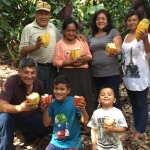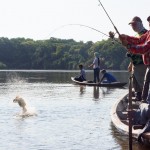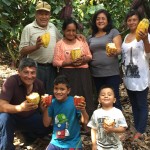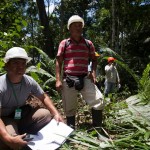
Todo empezó en los 80s, cuando él tenía 18 años. Un compañero de la universidad le propuso viajar a Tocache, Región San Martin, para hallar trabajo cultivando frutas. El plan era encontrar trabajo y ahorrar lo suficiente para terminar sus estudios en la universidad.

“Before, there was indiscriminate logging. There were not enough fish because they were extracted en masse by people from outside our community,” explains the inhabitant of San Pedro, one of the communities surrounding the Tamshiyacu Tahuayo Community Regional Conservation Area, located in the Loreto region of Peru.

It all started in the 1980s, when he was 18. A classmate proposed that he travel from Lima, Peru, to Tocache, a province in the Peruvian Amazon known for its fruits. He intended to find work and save enough money to finish his studies at the university.
July 2014—Forests hold a wealth of biodiversity. Peru’s Amazon rainforest ranks third in the world for biodiversity, and is the basis for the survival of hundreds of native communities. In these communities, women are the gatekeepers of ancestral knowledge for the use of non-timber forest resources such as seeds and medicinal plants.

July 2014—Two-thirds of Peru’s territory is covered by forest with potential for permanent forest production. This production, however, is threatened by illegal logging, one of the country’s most significant environmental, economic and social challenges.








Comment
Make a general inquiry or suggest an improvement.